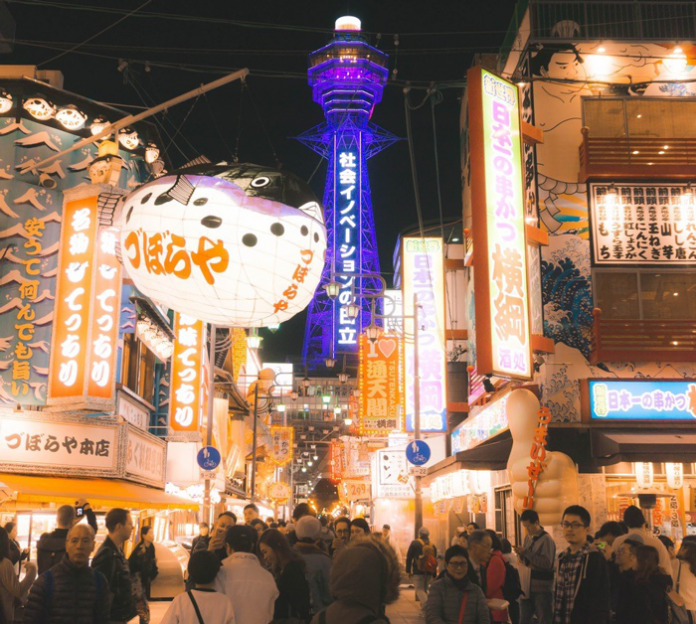
Japan’s lawmakers should use the enforced time-out of the coronavirus pandemic to abandon the flawed process and go back to the drawing board to start anew, this time heeding the public recrimination and industry critique as tenets for an IR policy makeover.
A Japan IR market has been extolled as having the potential to overshadow Singapore and even Macau—and it still can, if the lawmakers are willing to rewrite everything with a clean slate instead of a blank slate.
Separation of public and private sector high capital investment developments can take three forms—as a government project funded by public monies in instances of critical national infrastructure, or developments which are vital to national security; a for-profit private enterprise vehicle; or as a PPP (public-private partnership) framework when the government deemed the development as essential to the state, but lacks the necessary capital.
All three cases exist for integrated resort/casino developments, where casinos in the Netherlands are government-owned and run, while racetrack-casinos in New York state are based loosely on a PPP model where the state is the owner and extends operating licenses to private companies to build/ manage it.
The Japan IR Basic and Implementation law aligns with none of the above, going boldly where none other had gone before and which inadvertently ended in a black hole. For lack of a better word, it is sacrilegious to bring state (prefecture government) and enterprise together to jointly bid for an IR license, which is ultimately owned and operated by the private enterprise. This odd juxtaposition creates an unholy union crossing politics with private money and begs a surefire model for a graft funnel that’s too tempting to resist.
Even before the bidding had begun, it had led to the downfall of a senior vice minister and the jail conviction of the founder of a renowned Hokkaido onsen resort chain. Listen to the experts–the IR companies The breathy “Whatever it takes” echoed loudly in the minds of lawmakers along the sterile halls of Nagatacho. This initial euphoria precipitated a near-stampede of investors clawing over each other to throw money into a Japan IR. It all but drowned out the cautious advice from the industry and lulled the decision-makers into believing the sky’s the limit.
The result is a lopsided draft policy where the pot of gold dissipated as dust in the wind. A high flat casino tax, stringent locals casino entry requirements with directives to the point of even dictating the minimum amount of room inventory and convention space was how dizzyingly heady the powers that be had gone overboard. The collective blanching by investors serves little to deter lawmakers to the extent that only junket companies remained in the mix in many cases.
The withdrawal of industry leader Las Vegas Sands should have been a shrill wake-up call to signal more constructive dialogue with the industry because after all, they are the subject-matter experts and will be ponying their big dollars where their mouths are.
It is not too late—if any lawmaker and bureaucrat have an ear, let him hear what the industry has to say. There should be an OB-line separating matter of state and the private sector. In essence, the right to host an IR is something between the prefecture/ municipal government and the national government. The investors should never have been made to collude with local governments to bid for an IR license.
It is more appropriate for this to be a public-public process, where local governments submit their proposals to the national government based on a set of predetermined criteria to be prequalified for the right to host an IR. The criteria would be based on a range of economic and social measures as part of an urban masterplan, which also articulates the intended spillover effect the IR would have on the local economy and social fabric. A balanced scorecard grading system is then applied to the proposals to rank the bids and those below a benchmark score are eliminated while the rest are prequalified.
Listen to the voices of the Japanese public. The lawmakers need to hear the cries of their electorate and do good by them. The opacity of the IR process has Japanese denizens up in arms picketing all over the country and multiple civic groups in Yokohama are petitioning for Mayor Hayashi to be removed from City Hall.
Because of the considerable social impact from the casino gambling element, it should be made mandatory for a host city to conduct a local referendum to let its residents decide whether they want to have a casino in their backyard. After all, it is the residents who will have to live with the IR every day of their lives and not the lawmakers and bureaucrats in Nagatacho. Only prequalified municipalities with a majority referendum vote (eg. over 80 percent support) will then make it to the final shortlist of host locations. The top three-ranked cities are then cleared to proceed to the next step of the process.
Private bid–Proposal to develop and operate an IR.
The national government should lead to developing a standard IR bid specification that would be used by the three-shortlisted local governments for their IR tender process. These specifications should avoid absolute metrics so as not to disadvantage regional municipalities from the metropolitan cities. Each local government can include a supplementary specification which includes certain requirements pertinent to their specific location economic and social planning but such requirements should not contradict or supersede the base specifications.
The Casino Regulatory Commission should establish a task force of whom would collaborate with the IR Policy officials in each local government to form a bid evaluation team to study and score the bids submitted. Likewise, a bid selection panel comprising of senior ranking bureaucrats from both the national and local government should be formed to make the final decision based on the evaluation reports to select and appoint the successful bidder for each host location.
IR bid process–Consecutive, not concurrent.
Just as omitting absolute metrics in the bid specifications contributes to levelling the playing field between regional and metropolitan host locations, the tender exercise of the three final shortlisted host cities should be done in a consecutive manner, ie. one after another. This is to prevent the phenomenon of the marquee investors all gravitating towards only the larger metropolitan host locations and denying regional cities. This has already occured in the current build-up over the course of a highly fluid timeline set by the government culminating in a free-for-all frenzy by each local government. That has seen Osaka first taking star status before being left at the altar by bidders for Yokohama while the regional locations were completely ignored by the big players. If it had been a carefully curated process played out in a consecutive manner (in the order of the host location with the largest population base to the least), it would have permitted every host location, big or small, to each have their own day in the sun and an equal chance for a bite of the cherry. Similarly, on the other side, it gives each bidder the ability to plan and prepare their bids. Unsuccessful bidders for the first host bid can then choose to regroup and potentially re-bid for the second location and so forth.
It will be a litmus test on newly-elected Prime Minister Yoshihide Suga and his new administration as to whether they are willing to now proceed with their eyes wide open and admit to the shortcomings of the process thus far. If so, Suga should extend a free mandate to the panel of five appointed officials of the Casino Regulatory Commission led by Michio Kitamura to overhaul the process because it is imperative to get it done right or not do it at all.
—
*Daniel Cheng has almost 20 years of experience in the gaming industry, with former roles including senior vice president of Development for Hard Rock International, leading their Japan and Asia Pacific development and licensing efforts. He was also part of the executive time at Genting International, involved in their first US gaming property, Resorts World New York.






